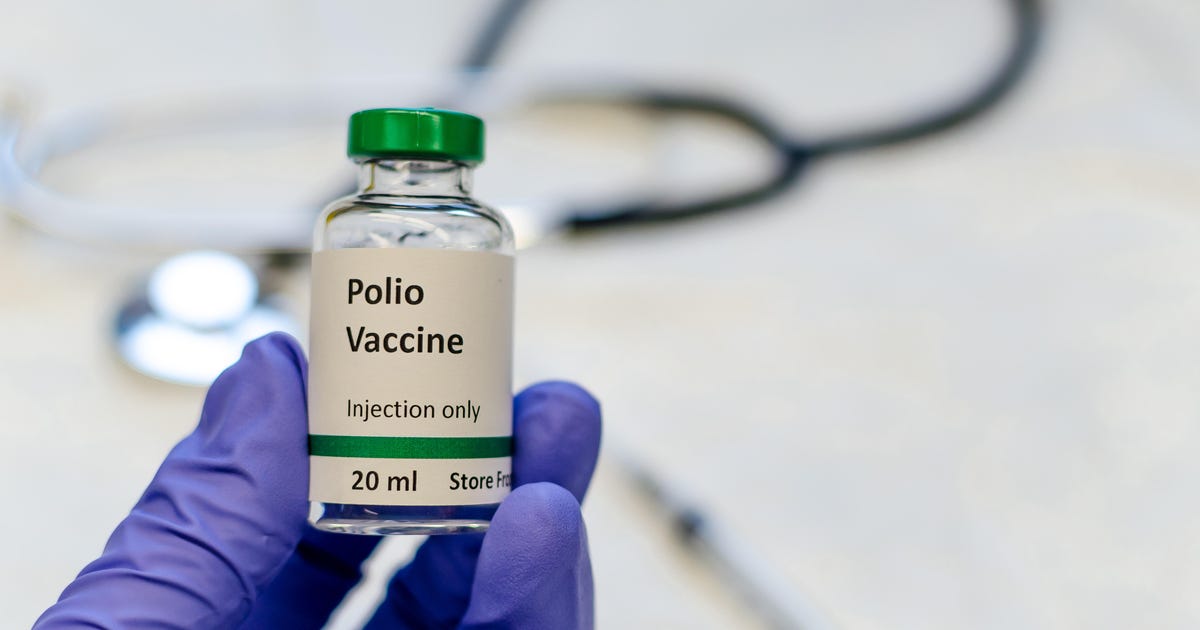Polio found in new york city wastewater health officials coronavirus polio found in new york city wastewater health officials backtrack polio found in new york city wastewater health officials meme polio found in new york city wastewater health officials definition polio found in new york city wastewater health officials threatened polio found in new york city wastewater collection polio found in new york water polio found in new york wastewater polio found in new york polio found in new york polio found in ny state franklin delano roosevelt polio foundation

Polio Found in New York City Wastewater: Health Officials Urge Vaccination
Polio was detected in New York City's wastewater, health officials said Friday, which suggests local transmission of the disease in the largest city in the US.
The findings in New York City follow a similar announcement from health officials last week that the poliovirus was detected in wastewater in two counties north of New York City this summer (Rockland County and Orange County). That announcement followed a confirmed case of polio in July in an unvaccinated person from one of those counties. It was the first polio case in the US in about a decade.
"For every one case of paralytic polio identified, hundreds more may be undetected," State Health Commissioner Dr. Mary T. Bassett said in a news release. "The detection of poliovirus in wastewater samples in New York City is alarming, but not surprising."
Polio is a viral disease that disabled more than 35,000 people each year in the 1940s before there was a vaccine. It was declared eliminated from the US in 1979. Most people with polio have only mild or no symptoms, but others can become paralyzed or die.
Most people today would've been vaccinated against polio as children, and it's a requirement for attending public schools in New York. The available vaccine for polio in the US -- which is recommended as a four-dose series typically given from the ages of 2 months through 6 years -- is 99% effective at preventing polio.
While it's not known how long the vaccine makes people immune to polio, according to the CDC, you're likely protected for many years after vaccination. Some adults, including those traveling to certain countries, and some health care or lab workers may have been recommended another vaccine after childhood.
However, Rockland County and Orange County, where polio was previously detected, have vaccination rates of a little over 60% and about 59%, respectively, compared with the statewide average of about 79%, health officials said. Vaccination rates against polio in New York City are a little over 86% in children up to 5 years.
"The risk to New Yorkers is real but the defense is so simple -- get vaccinated against polio," said New York City Health Commissioner Dr. Ashwin Vasan. "With polio circulating in our communities there is simply nothing more essential than vaccinating our children to protect them from this virus."
New York's health department recommends that all children and babies start the vaccination series for polio immediately if they haven't already. The health department also recommends that adults get three doses of the polio vaccine if they're unvaccinated, or are unsure whether they received the vaccine. Adults should also get the last one or two doses if they started the polio vaccine series but didn't finish (no matter when they started), and some people who are at increased risk of getting polio may get a booster if they've already been vaccinated.
The information contained in this article is for educational and informational purposes only and is not intended as health or medical advice. Always consult a physician or other qualified health provider regarding any questions you may have about a medical condition or health objectives.
Source


